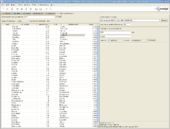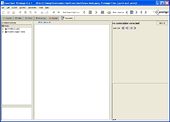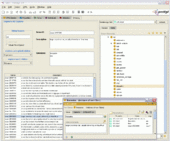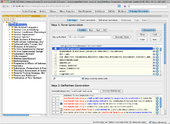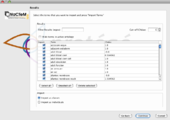Natural Language Processing
From Protege Wiki
Revision as of 15:49, August 29, 2007 by JenniferVendetti (talk | contribs) (adding new topic - natural language processing)
Topic - Natural Language Processing
| [[Image:|thumb|170px|center]] | ACE View |
| ACE View is an ontology and rule editor that uses Attempto Controlled English (ACE) in order to create, view and edit OWL 2 ontologies and SWRL rulesets. |
| ClojureTab | |
| USEFUL TOOL FOR KNOWLEDGE PROCESSING IN PROTEGE.
The ClojureTab uses the Clojure programming language for simple programming in the Protege environment, on-the-fly debugging, and storing programs in Protege projects. Contains: 1. Integrated development environment for Clojure language (https://clojure.org/) 2. Protege API for Clojure language 3. Rule engine and Expert system shell rete4frames (https://github.com/rururu/rete4frames) 4. Algorithms visual development environment |
| DISCOWordSpaces | |
| DISCO Word Spaces is a tab widget for retrieving semantically similar words and collocations
for a query word. The similarities have been computed on the basis of large text corpora for different languages and domains. DISCO Word Spaces helps at ontology building by suggesting similar and related words. |
| Knowtator | |
| A general-purpose text annotation tool that is integrated with the Protege knowledge representation system. |
| NaturalOWL | |
| NaturalOWL generates descriptions of individuals and classes from OWL ontologies that have been annotated with linguistic and user modeling resources expressed in RDF. Currently it supports English and Greek. |
| OntoLing | |
| Facilitates linguistic enrichment of ontologies and includes an interface for WordNet (from 1.6 to 2.1) and DICT dictionaries. Check the
home page for further details |
| Ontology Generation Plugin (DOG4DAG) | |
The ontology generation plug-in includes
|
| TerMine Plugin | |
| The TerMine Plugin uses text mining tools to extract candidate terms from a corpus of text and provides an interface for rapidly bringing these terms into an OWL ontology. |

